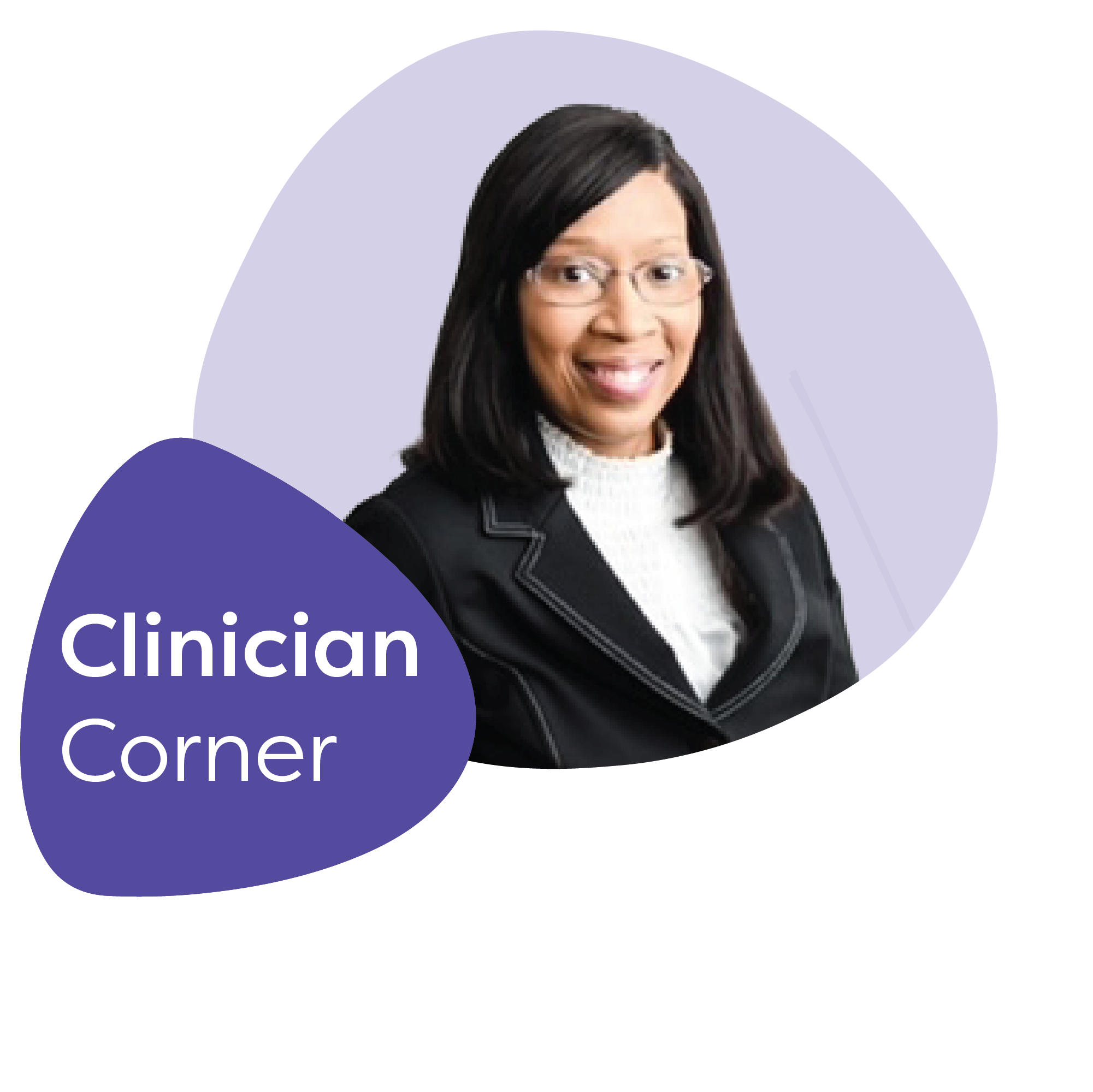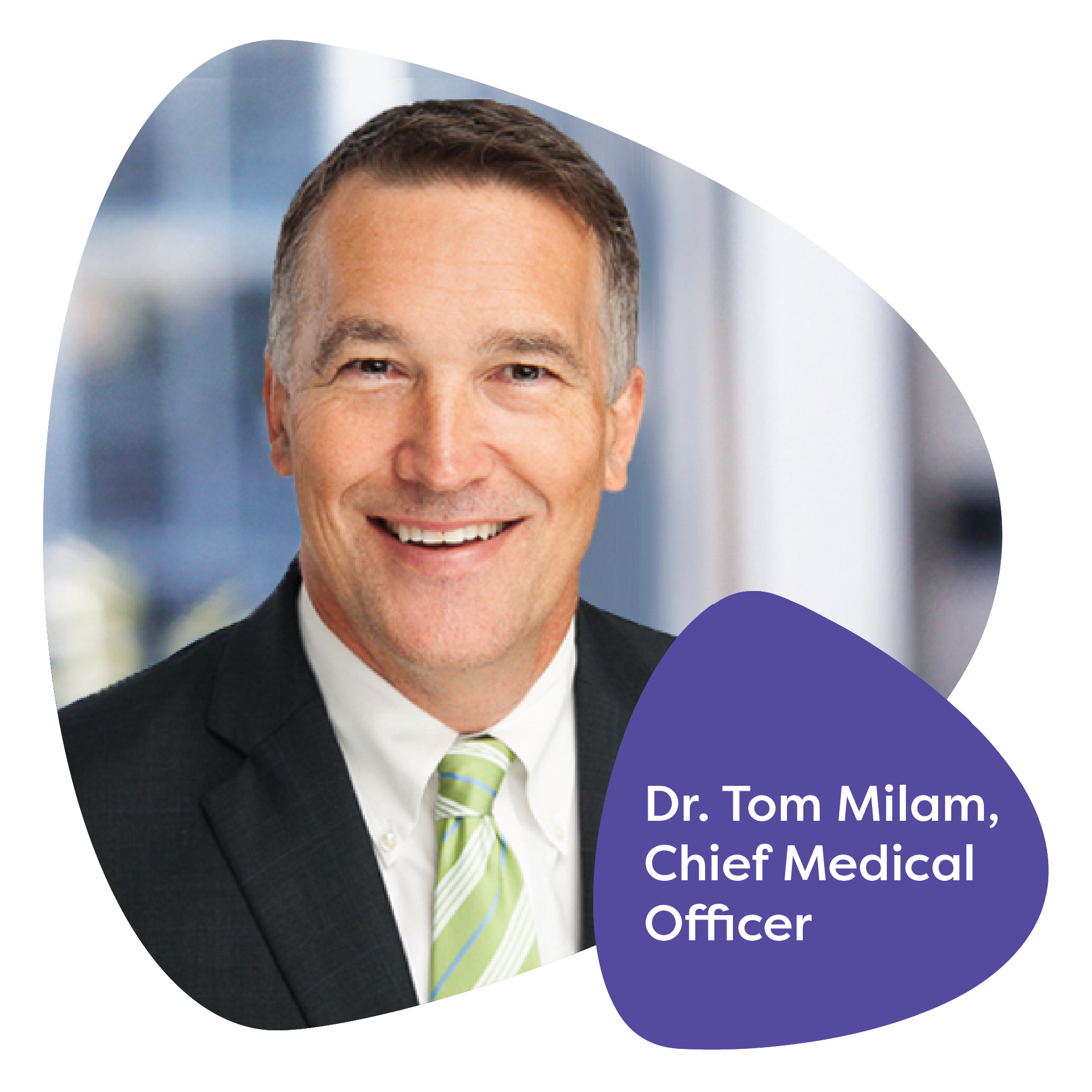Iris clinicians are at the heart of what makes our organization such a special place to work. That’s why we’re turning the spotlight on the amazing work they’re doing every day. This month, we’re sitting down to talk with Dr. Valerie King-Ernst.
Q. How did you find Iris and decide you wanted to be an Iris provider?
A. I had been getting inundated with emails from telehealth companies. Iris was one of them. I spoke with a few companies, but what led me to choose Iris is that when I met with or spoke with one of the individuals on the team, they were personable, and they made me feel like as a provider – if I worked with Iris – I would be looked after, and have a support team in place.
When I spoke with other telehealth companies, they sold it by saying, “You’ll have a lot of autonomy.” While I wanted that autonomy, I also wanted a team behind me. I didn’t feel like I would get that with other places.
Q. How does telehealth compare to in-person care?
A. The biggest difference is not having to travel. That’s the best thing. There isn’t anything that can beat that. Not having to travel allows me time to get situated to go over a chart, maybe run down all the patients and see like, “Okay, I might use this with this person, I might use that with that person.”
Not to say that I don’t do that when I’m in the outpatient setting or having to travel to a place, but I feel like when you’re in traffic, things can get a little stressful because you’re traveling in rush hour traffic and sometimes that can get a little tense for people. And when you don’t have to do that, that’s one less stressor, one less thing to worry about.
Working from home allows you to focus on getting ready for the day and getting prepared for the day when you can do it from home.
Q. How do you foster connection with patients virtually?
A. I have to be honest with you, I do nothing different than what I do inpatient or in person except, of course, I do ask them if they’ve done telehealth before. I also make sure to remind them that this is confidential, and I explain all of that to them.
In terms of developing a rapport, if it’s the first visit, I’ll introduce myself, and then I make sure I maintain eye contact. I greet them with a smile when they first sit down, and sometimes, I’ll find one thing they’ve said, and I’ll try to let them know that. I may share something that’s not too personal about myself but something they might be able to relate to so they know I understand what they’re saying.
And then I do a lot of empathic listening where I repeat back to them what they’ve said or paraphrase what they’ve said so they know that I’m here, I’m listening. I don’t just do that with telehealth. I do that all the time. I paraphrase what they said and ask, “Did I get that right?”
At the end of an initial visit, I always thank them for sharing their story. And that, for me, is a way of building rapport. So they know, “I appreciate that you came and you talked to this stranger for the first time, and you are sharing all this information.”
Then, on subsequent visits, I always make sure to remember key things they said and say, “Oh, okay, that’s right. Because you said, your daughter had a soccer game after that. How did that go?” So they know they’re not just a symptom to me. They are somebody that I care about, and I want to get to know them.
Q. As a healthcare professional, how do you manage work-life balance?
A. I make sure that I’m done by a certain time. I generally get all my work done before I have to sign off. The reason why I’m doing telehealth is to allow myself to have more time with my family.
I make time to stop work at a certain time. I try to stop at least no later than a couple of hours after my last patient.
Q. What is the most rewarding part of your job?
A. Particularly in this position, I would say that I get to work with underserved communities. I’ve worked in areas where I have worked with people that had communities that had a lot of the resources, like very well-to-do communities.
You can see the difference. They have the resources and places where they can be referred to for additional support in the community. However, working in an underserved community is more gratifying for me because a lot of times, when I’m talking to my patients, I realize they don’t know about a lot of the resources available.
I had a patient last month who had food insecurity. She was saying that she can’t spend much on medications. They don’t have money to eat or anything. They don’t have food in the house.
I went online and asked her, “Do you know if there’s a food bank in your area?” And she didn’t. I did obviously talk about churches, but then I Googled a food bank for her. Then, I put that information in the after-visit summary.
I had a patient whose kid had special needs. They were talking about everything they have to deal with in terms of that. So, I went online and looked up a special needs organization in their community, and then I put that in the after-visit summary. That’s what I like about working with underserved communities.
When I work with communities with a lot more, they already have those services. Like, “Oh yeah, my kid is in this, my kid is in that.” But when you’re working with the underserved communities, they don’t really have all those resources, and they don’t know where to find them.
It is gratifying to be able to do the extra research for them.
Q. What do you love about working with Iris?
A. Having clinical managers. I can focus more on patient care. There’s always these political machinations that go on behind the scenes, and having a clinical manager I can say, “This is a concern.” It allows me to focus more on patient care. Then they can take the concern to the clinic, and I don’t have to worry about the other in-between stuff. I can go ahead and focus on patient care. So that’s a plus for sure.
And also building relationships with them is good too because they’re good people. So that is one of the good things about it.
Q. Why do you think telepsychiatry is important to the future of mental healthcare?
A. Thirty years ago, there were more community mental health centers. We have fewer now. A lot of them have shut down due to lack of funding. There’s a shortage of psychiatrists and mental health providers. Telepsychiatry is important because now we get to reach those communities that do not have those services. Access is very important.
Q. What advice would you give someone new to telehealth?
A. I would tell them to take advantage of all that telehealth has to offer because it allows you more time to spend with family because you don’t have to worry about commuting. And it allows you to focus more on patient care. Take that in and appreciate that you have that advantage over those people that are not doing telehealth.
At Iris, we believe our providers should be respected, valued, and applauded for the work they do, and we couldn’t be more proud to say, “thank you” to our very own Dr. Valerie King-Ernst. If you’d like to learn more about working for Iris Telehealth, contact us today.


